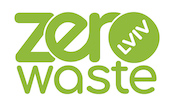Textile recyclers have told letsrecycle.com that segments of the industry have come to a “standstill” as charity shops across the UK have been forced to close because of the coronavirus pandemic.
However, textile recyclers suggest that material is still arising from textile banks but they expect this to slow in the coming weeks although there are unconfirmed reports that the public are “spring cleaning” and so may take material to banks, especially those on supermarket sites.
With the public ordered to only leave the house for groceries, medicine, exercise or essential work, charity shops have been closed and are no longer accepting donations.
This means that recyclers who would usually collect excess stock and recycle it, usually by selling it to be re-worn abroad, have no supply.
Grave concern
Alan Wheeler, director of the Textile Recyclers Association, said the issue is a “grave concern” for many but hopes government measures can support the sector.
“The charity sector is a really important part of the collections services for many,” he explained.
“With charity shops now closed many won’t have anything to do, and with no income this is a grave concern for many. I’m sure the government relief will at least offer a temporary respite, however.”
Key workers
There is also confusion within the recycling sector as to whether those collecting and selling textile bank donations should be considered key workers.
Some in the industry has told letsrecycle.com that if textile banks are closed, donations could just be dumped next to the banks instead.
Government
Textile recycling businesses looking at how government measures, such as the Coronavirus Job Retention Scheme, could help them reduce costs.
“Once we get back to daily life , it will take a very long time for the trade to get back to where it was”
However, concerns remain over fixed costs such as insurance and rent, which, with no income, might only be covered by cash reserves or a loan.
Concern
Tosh Vyas, managing director of Fortune Eximports, said that although the government’s initiatives have helped, he is concerned for the future of the industry.
“While the government initiatives have helped, I’m concerned that once we get back to daily life and routine has been restored, it will take a very long time for the trade to get back to where it was,” he explained.
Mr Vyas added: “Volunteers will be reluctant due to the fear of COVID 19, the public will not come out for donations to the same extent as they have been doing as they could be pushed in debt, as a result their purchase power will be reduced.
“We are facing a difficult time with a very dark future indeed and cannot see any light at the end of the tunnel.”
Exports
Adding “fuel to the fire”, as one recycler said, is a warning from the Kenyan government not to import clothes from countries hit by the pandemic, and also issues around the availability and cost of shipping containers for markets such as Pakistan.
Recyclers have said there has been an increase in customs checks at ports in Pakistan with the consequence that companies in Pakistan are less willing to take containers from the UK due to the delays brought on by this.













